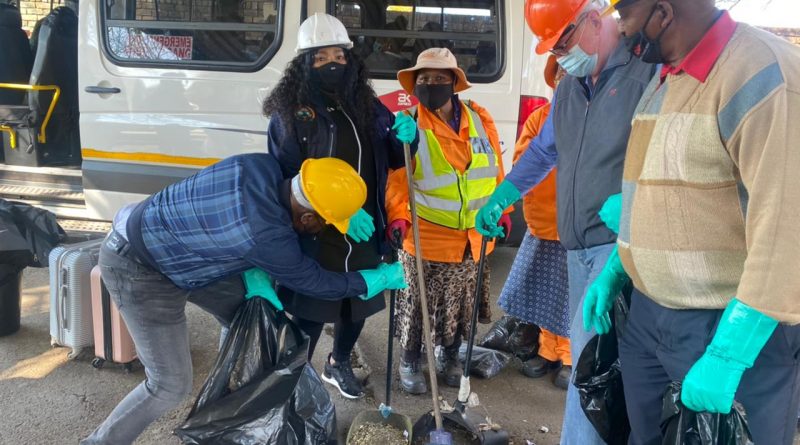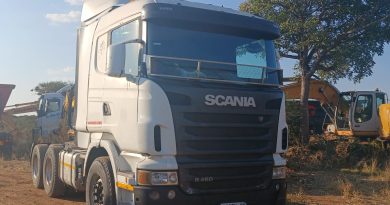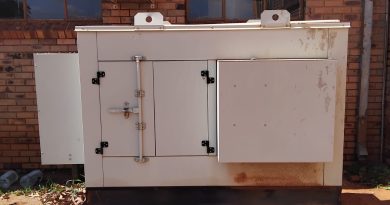EMLM embarks of clean-up campaign
GROBLERSDAL – In the interest of heightening environmental awareness among communities, the Elias Motsoaledi Local Municipality (EMLM) embarked on a clean-up campaign in Groblersdal Town last Thursday.
EMLM Mayor, Julia Mathebe and Ward 13 Councillor, Willem Oostheizen, joined by the local municipality’s MMCs for Community Services and Local Economic Development, Samaria Mashilo and Winter Ratlou respectively together with other senior managers embarked on the clean-up programme targeting the mushrooming illegal dumping sites around the town.
Fully armed with gloves, refuse bags, litter pickers and brooms, the team accompanied by municipal employees and ward 13 residents swept the streets, removed rubble, collected refuse, cleared illegal dumping sites as well as blocked KPIs and drains.
Mayor Mathebe said the campaign was about building responsible communities, environmental sustainability and to change the mindset and attitudes as well as habits of all those who were littering and illegally dumping.
Mathebe applauded residents from various communities within the ward who participated in the campaign and added that showed progress in the mission to attain environmental sustainability.
She called on members of the community to assume responsibility and clean the areas of their residences.
Simon Makua, EMLM Spokesperson, said the problem of illegal dumping was serious in communities and that it disturbed the local municipality that some people had the habit of dumping waste wherever they saw fit.
Makua said considering that tendency, the local municipality decided to embark on the campaign with the hope to conscientise people against illegal dumping and littering.
He added that the municipality had 32 large bins positioned at strategic points for people to use and not illegally dump or litter in the interest of the Environmental Health Act.
“The municipality removes waste on a daily basis around the Groblersdal Town and it is not true that people were dumping illegally or littering because waste is not frequently removed,” concluded Makua.




